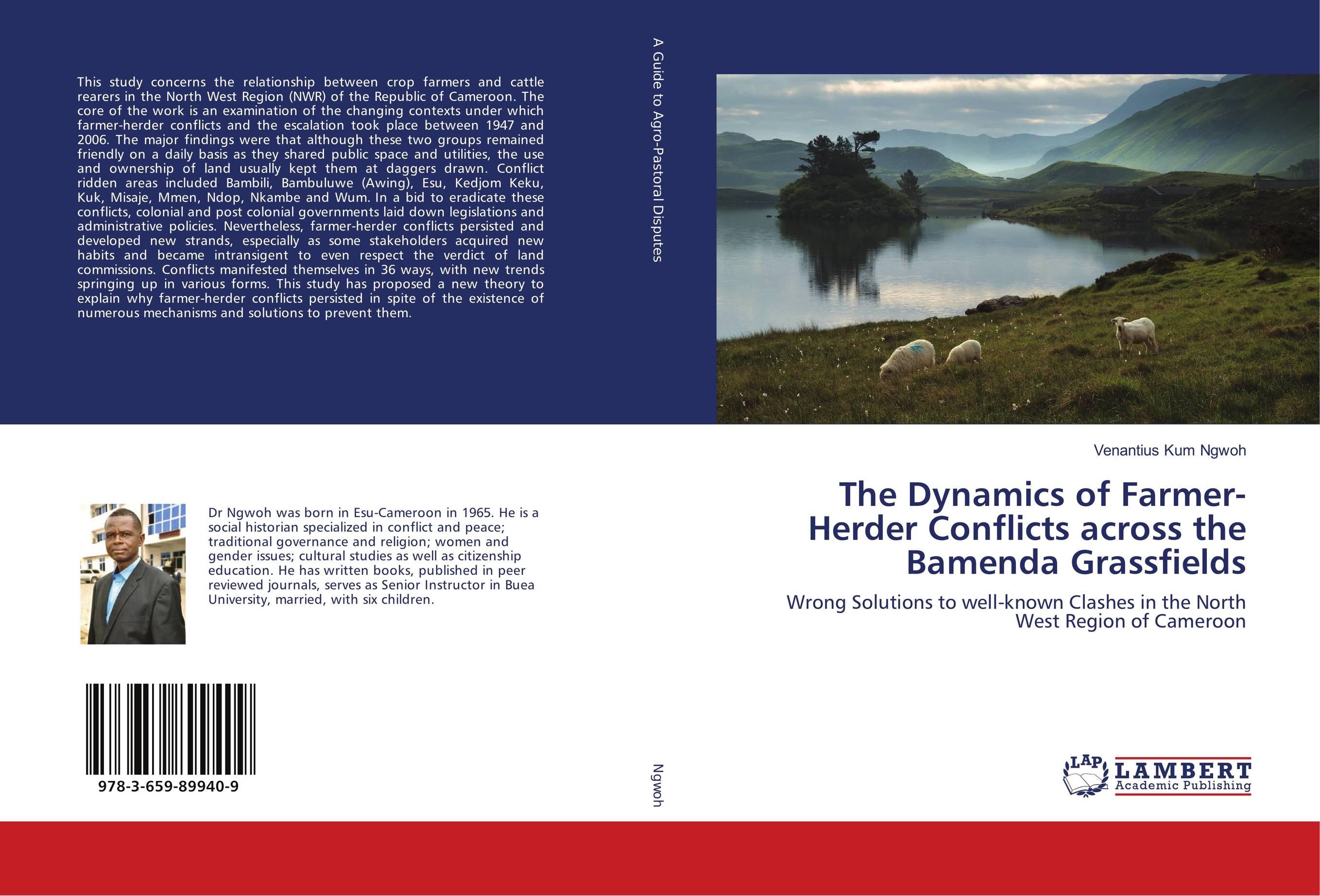| Поиск по каталогу |
|
(строгое соответствие)
|
- Профессиональная
- Научно-популярная
- Художественная
- Публицистика
- Детская
- Искусство
- Хобби, семья, дом
- Спорт
- Путеводители
- Блокноты, тетради, открытки
The Dynamics of Farmer-Herder Conflicts across the Bamenda Grassfields. Wrong Solutions to well-known Clashes in the North West Region of Cameroon

В наличии
| Местонахождение: Алматы | Состояние экземпляра: новый |

Бумажная
версия
версия
Автор: Venantius Kum Ngwoh
ISBN: 9783659899409
Год издания: 2016
Формат книги: 60×90/16 (145×215 мм)
Количество страниц: 480
Издательство: LAP LAMBERT Academic Publishing
Цена: 66321 тг
Положить в корзину
| Способы доставки в город Алматы * комплектация (срок до отгрузки) не более 2 рабочих дней |
| Самовывоз из города Алматы (пункты самовывоза партнёра CDEK) |
| Курьерская доставка CDEK из города Москва |
| Доставка Почтой России из города Москва |
Аннотация: This study concerns the relationship between crop farmers and cattle rearers in the North West Region (NWR) of the Republic of Cameroon. The core of the work is an examination of the changing contexts under which farmer-herder conflicts and the escalation took place between 1947 and 2006. The major findings were that although these two groups remained friendly on a daily basis as they shared public space and utilities, the use and ownership of land usually kept them at daggers drawn. Conflict ridden areas included Bambili, Bambuluwe (Awing), Esu, Kedjom Keku, Kuk, Misaje, Mmen, Ndop, Nkambe and Wum. In a bid to eradicate these conflicts, colonial and post colonial governments laid down legislations and administrative policies. Nevertheless, farmer-herder conflicts persisted and developed new strands, especially as some stakeholders acquired new habits and became intransigent to even respect the verdict of land commissions. Conflicts manifested themselves in 36 ways, with new trends springing up in various forms. This study has proposed a new theory to explain why farmer-herder conflicts persisted in spite of the existence of numerous mechanisms and solutions to prevent them.
Ключевые слова: Mbororo, cattle theft, conflict exacerbation theory, land grabbing, Nomadism, shifting cultivation, Bamenda Grassfields, Lake Nyos Disaster, Control of Farming and Grazing Law, Grazing Permit, dung exchange, Takumbeng, kwifoa, regicide



